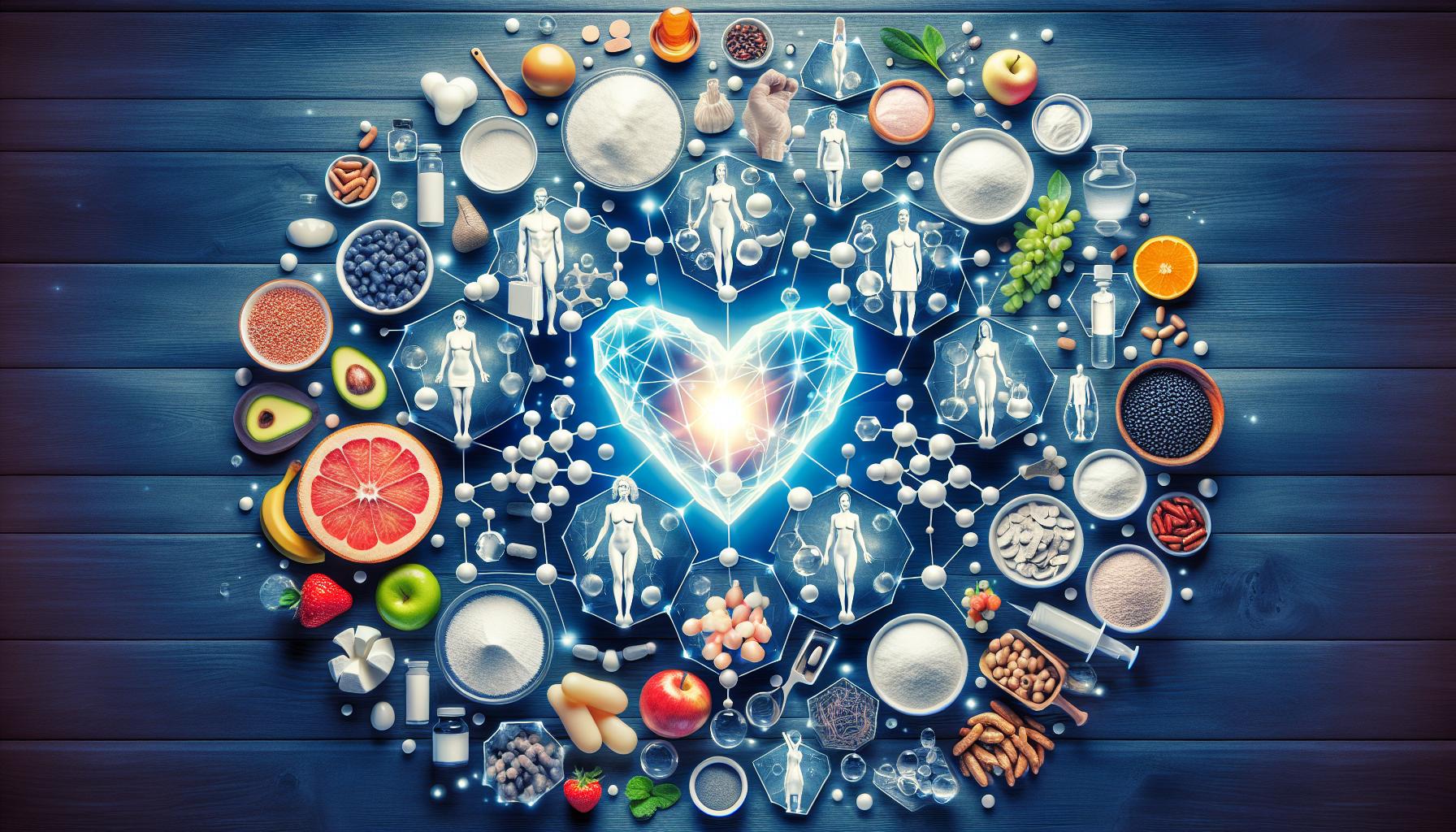Introduction
Where do our collagen supplements originate from? It’s the question circling every wellness enthusiast’s mind. In a nutshell, collagen supplements are mainly derived from animals like cows, chickens, or fish. They are extracted, processed, and hydrolyzed to get a form that’s easily digestible and beneficial for human consumption. This article will take a deep dive into the fascinating process of collagen extraction and the journey that leads it from the farm to your breakfast smoothie, leaving no stone unturned.
Collagen Supplements: A Walkthrough of Origin
We all know collagen is crucial for healthy skin, hair, nails, and joints, but how much do we know about its journey before it lands in our daily smoothie or pillbox? It’s a question worth pondering, providing grounding to our appreciation for this wonderful supplement.
From Nature’s Workshop to Your Countertop: The Journey of Collagen
To begin, let’s take a peek into nature’s workshop where collagen originates. Collagen is abundantly found in the connective tissues of animals. When animals are processed for food, these usually unwanted parts – the bones, skin, and tissues, are set aside. However, these cast off parts are teeming with collagen, making them a hidden treasure trove.
Extraction and Processing of Collagen
Don’t be fooled by the source, this rather grim beginning turns into a fine product through a series of careful processing steps. First, the tissues are comprehensively cleaned, boiled, and then simmered for many hours, often with vinegar added. The vinegar helps to break down the tissues and extract the collagen.
Transmuting Animal Tissue to a Treasure Trove of Collagen
As these tissues simmer, the triple helix structure of collagen changes. The long, fibrous proteins break down into smaller pieces, through a process called hydrolysis. The result of this careful cooking and processing is a substance known simply as collagen hydrolysate, or hydrolyzed collagen.
The Final Touch
This transformed collagen is a far cry from the raw tissues it originated from. It’s now an odorless, tasteless powder that dissolves in cold water. It’s during this stage that any additives like vitamins or flavors are often integrated. Quality control tests are performed to ensure purity, safety, and potency before it’s packaged into capsules, tubs, or sachets, ready for consumers.
The Making of the Modern Elixir
Ultimately, it’s this pure, powdered collagen that makes it way into your smoothie, coffee, or skincare product, enhancing your health and beauty from the inside out.
Choosing the Right Collagen Supplement
Not all collagen supplements are created equal. The source, extraction, and processing methods play critical roles in the quality of the final product. As a consumer, it’s essential to understand where your collagen supplements come from and how they are processed to ensure you reap the most benefits.
Picking the Prize: How to Find Quality Collagen Supplements
Ensure that the brand discloses the source of their collagen and prefers supplements from grass-fed, pasture raised animals or wild-caught fish. Also, consider choosing hydrolyzed collagen as its smaller peptide molecules are easier to digest, absorb, and utilize by our bodies.
Conclusion
In conclusion, collagen supplements we ingest come from an interesting journey starting from the farm and ending on our kitchen counters. Their source, and the meticulous process of extraction and purification attest to nature’s resiliency and our modern adeptness at harvesting the best that nature has to offer.
Frequently Asked Questions
1. Are all collagen supplements derived from animals?
Yes, virtually all collagen supplements come from animal sources, primarily cows, chickens, and fish.
2. Is there a vegetarian source of collagen supplements?
There’s no vegetarian source for collagen, although some plant-based supplements claim to boost collagen production in the body.
3. How is marine collagen extracted?
Marine collagen is extracted from fish scales and skin. The process is similar to the extraction of bovine or chicken collagen.
4. What is hydrolyzed collagen?
Hydrolyzed collagen is collagen that’s been broken down into smaller molecules, making it easier for the body to digest and absorb.
5. Does the source of collagen supplement matter?
Yes, the source of collagen matters. Collagen derived from grass-fed, pasture raised animals or wild-caught fish is considered to be of higher quality.


